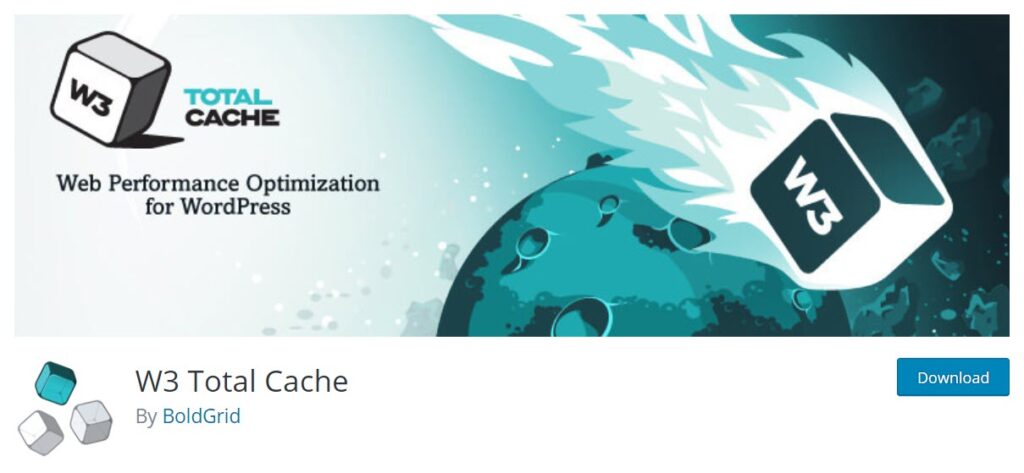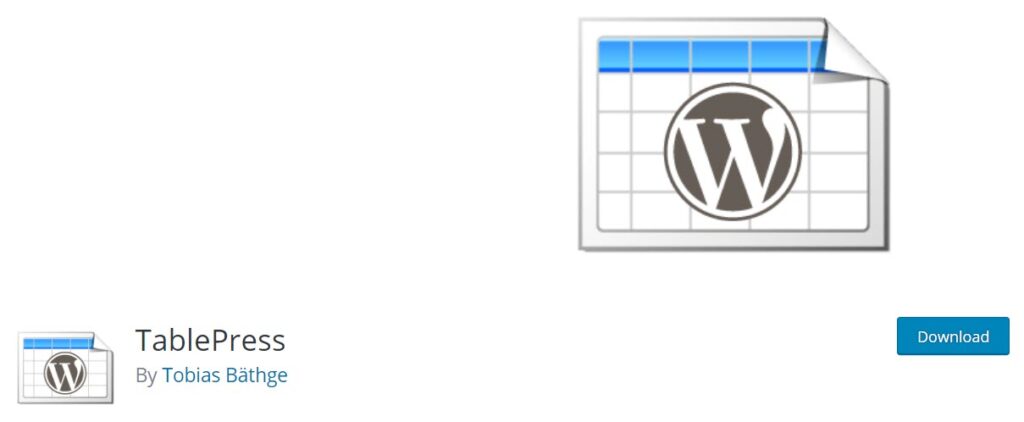
WordPress plugins allow you to add useful and efficient functionality as well as eye-pleasing design touches. Certain plugins even refresh the look of your website by quickly and easily adding modern design elements with little to no code.
However, with thousands of plugins to choose from, how do you know which plugin is best for you? For most, when deciding which type of plugin to use, the needs and goals of the website will guide the decision making.
Not all plugins are created equal, some have bad coding and can be a source of security issues. It can be tough to know which ones are useful and which ones are not. The following list is a compilation of 15 of the best plugins for your WordPress. Technical experts have vetted each plugin on the list and they are trusted by millions of users.
- weForms
- Akismet Anti-Spam
- WooCommerce
- Custom Sidebars
- W3 Total Cache
- TablePress
- Strong Testimonials
- iThemes Security
- Advanced Custom Fields
- Smart Slider 3
- Yoast
- Contact Form 7
- Pretty Links
- UpdraftPlus WordPress Backup Plugin
- Revive Old Posts
If you need a new home for your WordPress site, look no further than InMotion’s WordPress Hosting solutions for secure, optimized, budget-friendly servers.
Fast & Easy Transfers
Free SSLs
Hack Protection
Affordable
weForms

weForms is a beautiful form builder that allows you to easily create and add forms to your website. The user-friendly, drag-and-drop design gives you the tools and confidence you need to develop form solutions that work best for your website. The easy-to-use form builder gives you over 20 field options to create custom forms, or you can use form templates to save time. With all of the customization options available, you’ll have no problem creating a basic contact form, an event registration form, a lead generation form, and more. Download and install the WordPress plugin to experience the ease of adding forms to your website with weForms.
Why use this plugin? Easy to use form builder and scalability to extend functions is extensive. More than 20 custom fields to create your own specific forms.
- 4.5 out of 5 star rating (WordPress.org)
- Version 1.6.4
- WordPress versions 4.4 – 5.6+ (tested through 5.6)
- Compatible with PHP version 5.6.20 or higher
- 30,000+ active installations
- Pro versions starts at $49/year for 1 site
Akismet Anti-Spam

Akismet Spam Protection is a great tool that monitors your comments and contact form submissions for potentially harmful spam. The plugin checks incoming comments and submissions against their global database of spam and prevents spam from being published on your website. You can also review the comments that are caught or cleared by Akismet, as well as comments that were marked as spam or unmarked as spam by users. The plugin also has a discard feature that fully blocks the worst spam and maintains the speed of your website. Download and install Akismet to protect your website against spam.
Why use this plugin? An Automattic owned application that helps to guarantee its compatibility with WordPress. Helps to filter out comment and form submissions without user intervention.
- 4.5 out of 5 star rating (WordPress.org)
- Version 4.18
- WordPress versions 4.6 – 5.6+ (tested through 5.6)
- 5 million+ active installations
- Free for personal blogs, paid subscriptions start at about $10/month
WooCommerce

WooCommerce is a robust eCommerce solution that will allow you to quickly and easily sell your product and services. In addition to providing a fully functional online store complete with payment and shipping options, the plugin has many extensions and integrations that will allow you to create an online store that best fits your needs. You can sell physical, downloadable, or affiliate products. Also, through integrations, you’ll also be able to take bookings, offer memberships, set up recurring payments through subscriptions, and more. Learn more about the benefits of WooCommerce and start your eCommerce journey.
Why use this plugin? Another Automattic owned application that has become a widely used eCommerce solution for WordPress. Free with many options for expansion.
- 4.5 out of 5 star rating (WordPress.org)
- Version 4.9.2
- WordPress versions 5.3 – 5.6+ (tested through 5.6)
- PHP 5.3 or higher
- 5 million+ active installations
- Free with many extensions (free and paid) to extend functionality
Custom Sidebars

One of the more frustrating details that beginner WordPress users face is trying to set up sidebars for their functional or design needs. Widgets are the design elements that occupy these spaces, but they’re often limited by the theme that’s being used. The Custom Sidebars plugin allows you to display custom widget configurations on any page, post, category, post, or archive page.
Why use this plugin? Easy to use and gives you the option to customize your sidebars in spite of the limitations of a theme.
- 4.5 out of 5 star rating (WordPress.org)
- Version 3.3
- WordPress versions 4.6 or higher (tested through 5.6)
- Compatible with PHP version 5.6 or higher
- 200,000+ active installations
- Free
W3 Total Cache

W3 Total Cache improves your SEO and user experience by reducing load times and increasing website performance. Users of the plugin can see improvements in search engine results, especially for mobile-friendly and SSL enabled websites. It also increases site performance by reducing load time, optimizing rendering, and browser caching. No matter what kind of site you manage, W3 Total Cache sets you up for optimal performance.
Why use this plugin? Comprehensive caching solution to help improve WordPress performance. Integrates with CDN (content delivery network) and helps to optimize code to make your WordPress site load faster.
- 4.5 out of 5 star rating (WordPress.org)
- Version 2.1.0
- WordPress versions 3.8 or higher (tested through 5.6)
- Compatible with PHP version 5.3 or higher
- 1 million+ active installations
- Free with the pro version at $8.25/month (billed yearly)
TablePress

TablePress gives you the ability to create and manage robust, beautiful tables right from the dashboard. The tables can be edited in a spreadsheet interface and users can embed the tables into posts, pages, and widgets with a shortcode. Perfect for websites displaying a lot of information, this plugin also allows any type of data, including formulas. You can also export the tables or import tables as Excel, CSV, HTML, and JSON files.
Why use this plugin? Create complex tables without any coding knowledge. Expands upon the table options from default WordPress editor. Features like formula support, row highlighting, table import support, and many other features.
- 5 out of 5 star rating (WordPress.org)
- Version 1.12
- WordPress versions 5.3 or higher (tested through 5.6)
- Compatible with PHP version 5.6.20 or higher
- 800,000 + active installations
- Free (premium extensions available)
Strong Testimonials

Strong Testimonials allows you to collect and publish testimonials and reviews easily. Testimonials and reviews are highly valued by end users and can positively assist in the growth of your business and website. This plugin gives you the ability to add a beautiful testimonials area that inherits the style of your theme. In addition, editing the testimonials area is easy with their visual editor, and the testimonials can be displayed using a shortcode or widget on the appropriate page.
Why use this plugin? Easy to use for collecting and displaying testimonials with multiple design options. Forms for capturing testimonials are also protected against spam.
- 5 out of 5 star rating (WordPress.org)
- Version 2.50.4
- WordPress versions 5.2 or higher (tested through 5.6)
- Compatible with PHP version 5.6 or higher
- 100,000 + active installations
- Paid version starts at $29 (1-year license)
iThemes Security

iTheme Security locks down your WordPress site by giving you over 30 ways to secure and protect it. With thousands of hacks each day, the plugin works to fix common holes, stop automated attacks and strengthen user credentials to keep your website safe. It addition to a list of protection, detection, obscuring and recovering features, it also has brute force protection and bans users who have tried to break into other sites from breaking into yours.
Why use this plugin? Security application from a company with over 10 years of experience in providing WordPress tools. Harden your WordPress site’s security with features that help you to identify weak passwords and common holes.
- 4.5 out of 5 star rating (WordPress.org)
- Version 7.9.0
- WordPress versions 5.4 or higher (tested through 5.6)
- Compatible with PHP version 5.6 or higher
- 1 million+ active installations
- Pro version starts at $80 per year for a single site
Advanced Custom Fields

Advanced Custom Fields allows you to add and edit customs fields for additional sections and content on pages via the edit screen. Perfect for custom websites or themes without a block builder, this plugin allows you to easily add dynamic elements to your pages without the need to overhaul your entire website. In addition to pages and posts, the fields can also be added to comments and used for taxonomy terms, media and more.
Why use this plugin? Create custom fields to control your WordPress edit screens or field data. Very flexible plugin that will help expand the functionality of your WordPress site.
- 5 out of 5 star rating (WordPress.org)
- Version 5.9.4
- WordPress versions 4.7 or higher (tested through 5.6)
- Compatible with PHP version 5.6 or higher
- 1 million+ active installations
- Pro version starts at $49 per year for a single site
Smart Slider 3

Smart Slider 3 is a wonderful plugin that allows you to add beautiful, dynamic design elements to your website with ease. Create fully responsive, SEO optimized sliders with animations, layers, buttons, and more without code. The paid version even allows you to add videos via YouTube or Vimeo. Smart Slider 3 is another excellent tool that allows you to refresh the look of your site without a complete redesign.
Why use this plugin? Create custom sliders, carousels, blocks, and full page designs. Easy to use interface and comes with 11 sliders in the free version.
- 5 out of 5 star rating (WordPress.org)
- Version 3.4.1.16
- WordPress versions 4.9 or higher (tested through 5.6)
- Compatible with PHP version 7.0 or higher
- 700,000+ active installations
- Pro version starts at $35 one-time payment for a single site
Yoast

Yoast SEO has been everyone’s favorite SEO plugin since it came out in 2008. Why? When it comes to SEO, Yoast does it all. These are just a few of the included features:
- Title and meta description templating
- Internal linking to optimize content
- URLs to avoid duplicate content
- Generate XML sitemaps at the push of a button
- See how your site performs in search engines and fix crawl errors
Why use this plugin? Yoast helps you to optimize keywords, key phrases, synonyms, related keywords, and all word forms in order to improve your Search Engine Optimization (SEO). Checks your website content so that you can increase your visitors from search engines like Google and Bing.
- 5 out of 5 star rating (WordPress.org)
- Version 15.7
- WordPress versions 5.5 or higher (tested through 5.6)
- Compatible with PHP version 5.6.20 or higher
- 5 million+ active installations
- Premium version starts at $89 for a single site
Contact Form 7

Another perennial favorite, Contact Form 7 allows users to create and manage multiple contact forms, use reCaptcha verification, and filter out spammy submissions via Akismet. Even better? You can quickly and easily create beautiful contact forms without any coding knowledge – and it’s all free.
Why use this plugin? Create multiple contact forms in up to 63 languages. Data privacy settings and spam filtering provide protection while form customization is easy with support for simple markup.
- 4 out of 5star rating (WordPress.org)
- Version 5.3.2
- WordPress versions 5.4 or higher (tested through 5.6)
- 5 million+ active installations
- Free
Pretty Links

Pretty Links takes any current and future links on your website and shortens them for a cleaner look (without having to log onto a third-party website or create an account with yet another vendor). And not only that, but you can track where all of the clicks come through those links. If you include lots of affiliate links in your blogs, it just makes sense to track which links are being clicked the most and where those visitors are coming from.
Why use this plugin? Pretty Links helps you to make it easy to track, manage, and share URLs on or off your WordPress site.
- 5 out of 5 star rating (WordPress.org)
- Version 3.2.1
- WordPress versions 5.1 or higher (tested through 5.6)
- 200,000+ active installations
- Pro version starts at $49 a year for a single site
UpdraftPlus WordPress Backup Plugin

The importance of running regular backups on your website cannot be understated. Nothing is worse than the prospect of losing all of your work due to a catastrophic virus or faulty update. Luckily, the UpdraftPlus WordPress Backup plugin makes it super simple to run backups without any time or effort on your part. With automatic scheduled backups and offsite storage, your data is always safe and can be retrieved quickly, should you need it.
Why use this plugin? Makes it easy to create and restore backups. You can backup into the cloud using services like Dropbox, Google Drive, or Amazon S3 (to name a few). The paid version allows you to use Microsoft OneDrive, Google Cloud Storage, SFTP, SCP, or WebDAV.
- 5 out of 5 star rating (WordPress.org)
- Version 1.16.46
- WordPress versions 3.2 or higher (tested through 5.6)
- 3 million+ active installations
- Premium version starts at $70 for 2 licenses
Revive Old Posts

Do you publish new content all the time, but never remember to go back and promote your older articles and blogs? Revive Old Posts will do that for you. This plugin will go back into your archives, find older blogs, and share them with your audience on social networks like Facebook and Twitter. Not only does it eliminate the need for you to constantly promote your own blogs, but it keeps your social feed full of original content that will help drive traffic to your site.
Why use this plugin? Helps to boost website traffic, grow social media followers, keep existing followers engaged in your website content. Automatically shares to social networks like Facebook, Twitter, Google My Business, LinkedIN, and Tumblr.
- 4 out of 5 star rating (WordPress.org)
- Version 8.6.5
- WordPress versions 3.5 or higher (tested through 5.6)
- Compatible with PHP version 7.1 or higher
- 40,000+ active installations
- Pro version starts at $75 a year for a single site
Conclusion
This list of the 15 top WordPress plugins represent a small collection of the thousands of plugins available to use on your website. If you’re looking to add functionality or change an aspect of your WordPress site, plugins are often the most economic and efficient way to accomplish that with little effort and cost.
Our list is closely reviewed for safety, performance and security. As with any software, make sure to carefully consider your choices and double-check how each plugin contributes to your website.
To learn more about WordPress plugins, check out our WordPress Education Channel and our collection of WordPress plugins articles and tutorials.
Improve the performance and security of your WordPress website with our WordPress VPS Hosting plans. Featuring blazing fast servers with advanced caching, 99.99% uptime, and a robust toolkit developed by WordPress experts.
Improve Core Web Vitals
Free SSL & Dedicated IP
Advanced Server Caching
US & EU Data Centers